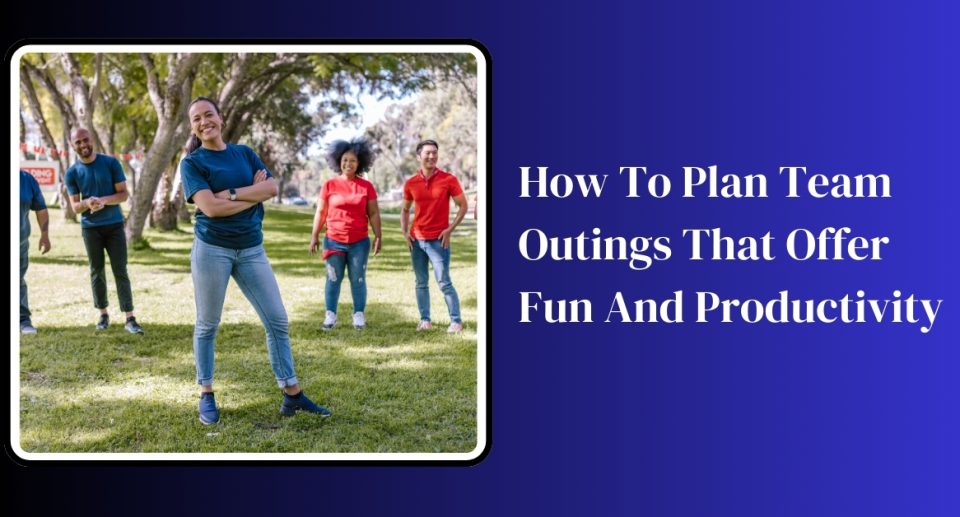Team outings are more than just a break from the office—they are strategic tools for enhancing team cohesion, boosting morale, and fostering a positive work environment. When executed effectively, these outings can transform a group of individuals into a well-oiled team that collaborates seamlessly and communicates openly. The key to a successful team outing lies in balancing fun with productivity, ensuring that employees not only enjoy themselves but also derive tangible benefits that translate into improved workplace dynamics.
What Types Of Activities Are Suitable For Team Outings?
1. Social Events
Casual gatherings like dinners or picnics allow employees to socialize in a relaxed setting. These events foster personal connections and improve team morale. They also provide a break from work-related discussions, allowing employees to interact on a more personal level.
2.Workshops and Training Sessions
Educational workshops focused on leadership or skill development offer valuable learning opportunities. These sessions provide practical knowledge and encourage teamwork through group exercises. They help in personal growth while reinforcing the importance of collaborative learning.
3. Team-Building Games
Interactive games such as escape rooms or scavenger hunts encourage teamwork and problem-solving. These activities require participants to communicate, strategize, and collaborate to succeed. They are designed to be engaging and fun, while also enhancing key team skills.
4. Outdoor Adventures
Activities like hiking or kayaking provide physical challenges and require teamwork. These experiences promote resilience and collaboration, as team members support each other through the activities. The natural environment also helps employees relax and bond away from the usual work pressures.
5. Volunteering Activities
Participating in community service projects promotes teamwork and empathy. Volunteering together helps team members bond over a shared purpose and reinforces the company’s commitment to social responsibility. It also provides a sense of accomplishment and positive impact on the community.
Why Are Team Outings Important?
1. Boosting Morale
A well-planned outing provides a welcome break from routine work, helping employees unwind and recharge. This boost in employee morale leads to increased job satisfaction and motivation. High morale translates into a more engaged workforce, reducing turnover and enhancing overall productivity and performance.
2. Building Relationships
Team outings foster personal connections by allowing employees to interact in a relaxed setting. This helps break down professional barriers and encourages mutual understanding and trust. Strong interpersonal relationships improve collaboration and communication, leading to a more cohesive and effective team.
3. Promoting Teamwork
Activities that require group effort and problem-solving enhance teamwork. Employees learn to collaborate effectively, appreciate each other’s strengths, and support one another. This improved teamwork can lead to better project outcomes, smoother workflow, and a more harmonious work environment.
4. Improving Communication
Informal settings during outings facilitate open and honest communication. Team members feel more comfortable sharing ideas and feedback, leading to better understanding and problem-solving. Improved communication helps in resolving conflicts, making decisions, and enhancing overall team effectiveness.
5. Celebrating Success
Outings provide a platform for celebrating achievements and milestones. Recognizing and rewarding success in a fun and relaxed environment reinforces positive behavior and motivates employees. Celebrations also foster a sense of accomplishment and belonging, enhancing team spirit and loyalty.
What Are The Initial Steps In Planning A Team Outing?
Choosing the right activities for a team outing is crucial for ensuring that it is both fun and productive. Here are some steps to plan a successful team outing:
1. Communicate Details
- Send Invitations: Provide team members with detailed information about the outing, including the date, time, location, itinerary, and any special instructions. Send reminders as the date approaches.
- Provide Preparation Guidelines: Inform participants about what they need to bring, wear, or prepare for the outing. This might include dress codes, necessary equipment, or personal items.
- Keep Lines of Communication Open: Ensure there is a point of contact for any questions or concerns team members might have leading up to the event.
2. Plan Activities
- Match Activities to Objectives: Choose activities that align with the outing’s objectives, whether they are focused on team-building, relaxation, or skill development. Ensure activities are engaging and suitable for all team members.
- Include a Variety: Plan a mix of activities to cater to different interests and energy levels. This might include physical challenges, creative exercises, and social or recreational options.
- Consider Professional Facilitation: For complex team-building exercises or workshops, consider hiring professional facilitators who can guide the activities and ensure they meet the desired outcomes.
3. Set a Budget
- Estimate Costs: Create a detailed budget that includes costs for activities, transportation, meals, accommodation (if needed), and any additional expenses. Be realistic about what can be achieved within the available budget.
- Plan for Contingencies: Allocate a portion of the budget for unexpected expenses. This provides flexibility in case of unforeseen costs or last-minute changes.
- Seek Approval: If necessary, get approval from management or finance teams to ensure that the budget aligns with organizational policies and financial constraints.
4. Choose a Date and Location
- Select a Date: Pick a date that works for the majority of the team, avoiding busy periods or conflicting schedules. Consider whether the outing will be a half-day, full-day, or multi-day event.
- Choose a Location: Select a location that is convenient for the majority of participants. Factor in travel time, accessibility, and any specific needs related to the activities planned. The location should also align with the goals of the outing, such as outdoor spaces for adventure activities or indoor venues for workshops.
- Book in Advance: Secure the location well in advance to ensure availability and avoid last-minute issues. Confirm all bookings and reservations early to lock in your plans.
5.Gather Input
- Conduct Surveys: Use surveys or questionnaires to gather input from team members on their preferences for activities, locations, and dates. This ensures the outing aligns with their interests and increases participation.
- Hold Brainstorming Sessions: Organize brainstorming sessions or focus groups to discuss ideas and gather diverse perspectives. This can help uncover creative and engaging activity options that may not have been considered otherwise.
- Consider Special Needs: Take into account any special requirements or accommodations needed for team members, such as dietary restrictions, accessibility needs, or personal preferences.
6. Organize Logistics
- Coordinate Transportation: Arrange transportation to and from the location, if necessary. Consider options such as carpooling, charter buses, or public transport, and ensure all team members have the necessary details.
- Arrange Accommodation: If the outing spans multiple days or requires overnight stays, book accommodation in advance. Choose a comfortable and convenient place that meets the needs of the team.
- Plan Meals and Refreshments: Organize catering or meal arrangements, keeping in mind dietary restrictions and preferences. Ensure that refreshments are available throughout the day, especially if the outing involves physical activities.
7. Define Objectives
- Clarify Goals: Start by identifying the primary purpose of the outing. Is it to build team cohesion, improve communication, celebrate a milestone, or simply provide a fun break? Defining clear objectives helps tailor the outing to achieve specific outcomes.
- Set Success Metrics: Decide how you will measure the success of the outing. This could be through feedback surveys, observing changes in team dynamics, or tracking improvements in collaboration and morale.
8. Prepare for Contingencies
- Develop Backup Plans: Prepare alternative plans in case of unexpected issues, such as bad weather, transportation problems, or activity cancellations. Have contingency activities or options in mind.
- Assess Risk Factors: Identify potential risks associated with the outing and take steps to mitigate them. This might include ensuring health and safety measures, having first aid supplies on hand, or providing clear guidelines for emergency situations.
- Ensure Flexibility: Be ready to adapt plans as needed to accommodate any unforeseen changes or challenges.
9. Facilitate the Event
- Assign Roles: Designate team members or organizers to oversee different aspects of the outing, such as managing activities, coordinating logistics, or handling any issues that arise.
- Monitor Engagement: Keep an eye on participation levels and engagement during the outing. Be prepared to make adjustments to activities or schedules if needed to maintain enthusiasm and involvement.
- Encourage Interaction: Promote interaction and teamwork throughout the event. Use icebreakers or discussion prompts to facilitate conversation and bonding among team members.
10. Evaluate Success and Follow-Up
- Collect Feedback: After the outing, gather feedback from participants through surveys or informal discussions. Assess what went well and identify areas for improvement.
- Review Objectives: Evaluate whether the outing achieved its objectives. Consider how the experience impacted team dynamics, communication, and morale.
- Share Outcomes: Communicate the outcomes and highlights of the outing with the team and management. Share any positive feedback and success stories to reinforce the value of team-building activities.
Conclusion
Team outings are valuable opportunities for organizations to strengthen team bonds, boost morale, and enhance overall team effectiveness. As a corporate outbound program company in Mumbai, investing in team outings demonstrates a commitment to employee well-being and teamwork, ultimately contributing to organizational success and growth. Whether it’s a day of outdoor adventure, a team-building workshop, or a social gathering, a well-planned team outing can leave a lasting positive impact on the team and the organization as a whole.




